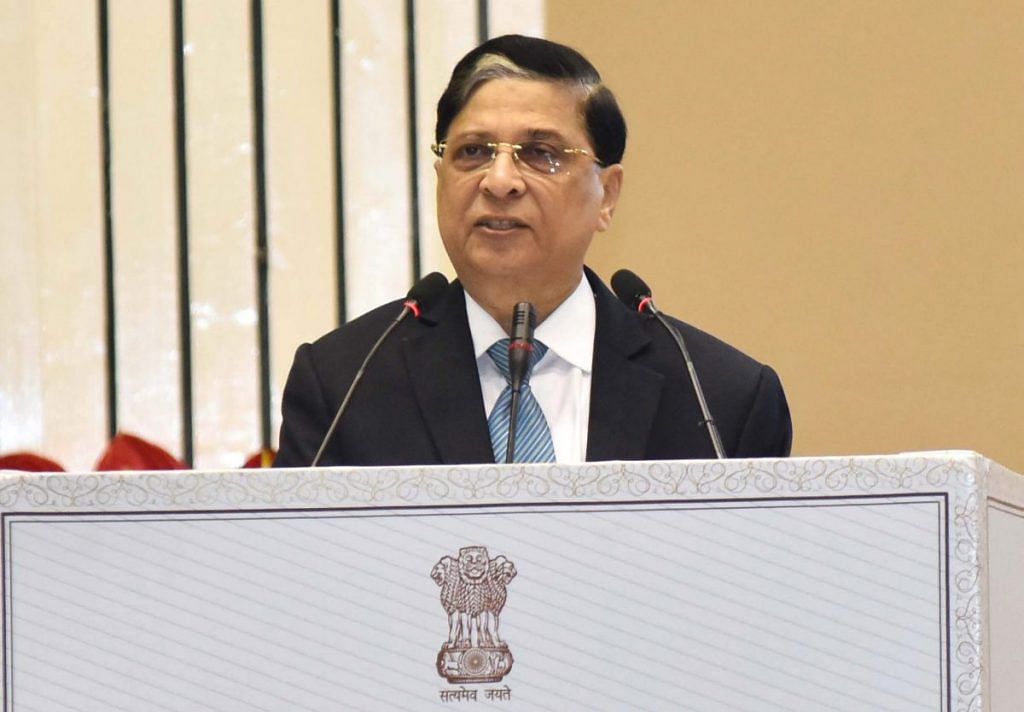The three-judge bench hearing the ‘administrative powers of CJI’ case is headed by Dipak Misra himself. Its ruling will be binding on him and all future CJIs.
New Delhi: The unending controversy over the Chief Justice of India’s power to allocate cases is set to take a fresh turn as the apex court is expected to deliver a ruling on the issue Wednesday.
The ruling of the bench, comprising of CJI Dipak Misra, Justice A.M. Khanwilkar and Justice D.Y. Chandrachud, on the administrative powers of the CJI will be binding not only on the incumbent but future CJIs as well. Misra will retire on 2 October 2018.
The CJI, as the ‘master of the roster’, has the prerogative to allocate cases to all the other judges.
But the bench headed by the CJI has agreed to “pass judicial orders” on a petition calling for a “transparent and codified procedure for the constitution of benches and allocation of cases” in the apex court.
The petition and who’s behind it
Even before advocates Shanti and Prashant Bhushan could get a hearing in their case to “regulate the administrative powers of the Chief Justice of India”, the apex court had admitted another similar case this week. This second petition was filed by Asok Pande, a Lucknow-based advocate and president of the Hindu Personal Law Board.
In 2013, the apex court had imposed a fine of Rs 1 lakh on Pande for filing frivolous public interest litigations. Pande claims to have filed over 200 PILs.
Wednesday’s ruling will make the plea filed by the Bhushans infructuous, as it is on the same subject. Prashant Bhushan had written a letter to the secretary general of the Supreme Court registry, saying that since the petition directly involves the CJI and since he is a respondent, he should not hear the case or decide the roster to hear the case.
If the Bhushans’ plea were to be allowed the case could have been heard by Justice Chelameswar, the second most senior judge in the apex court. Chelameswar is due to retire on 23 June.
After four senior SC judges, in their unprecedented 12 January press conference, expressed concerns about case allocation under CJI Misra, an official roster was put up on the court’s website.
According to the current roster, a bulk of important matters, including all PILs and writ petitions or challenges to legislation are to be heard by the CJI.
